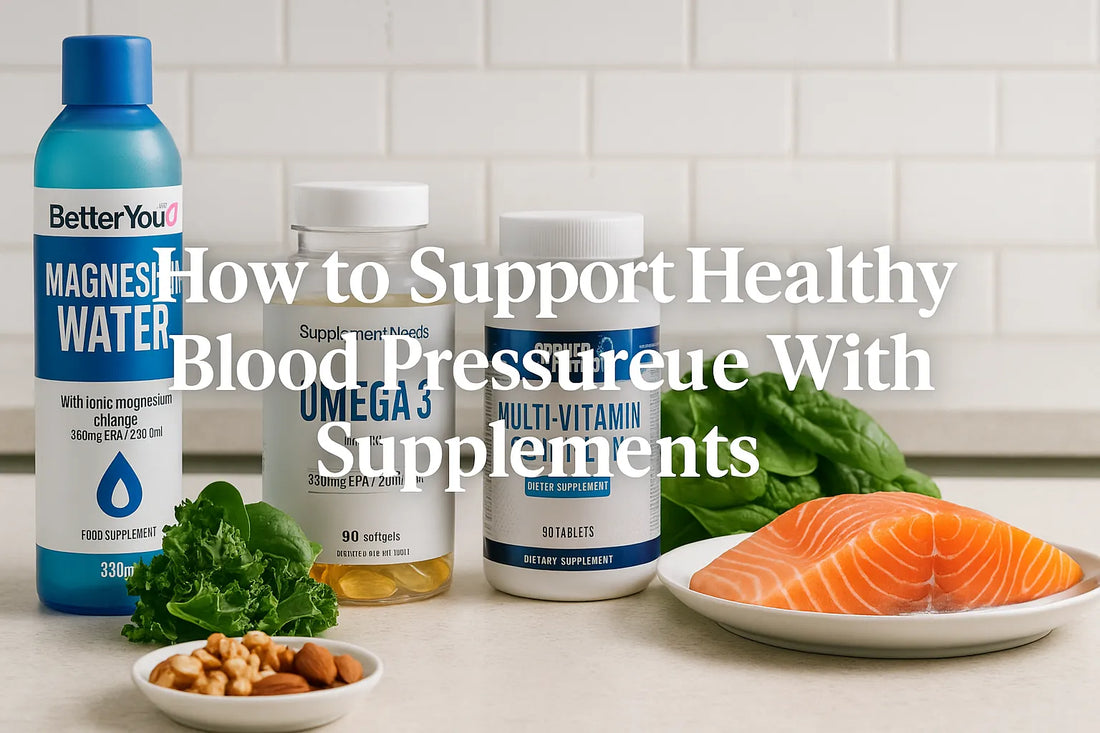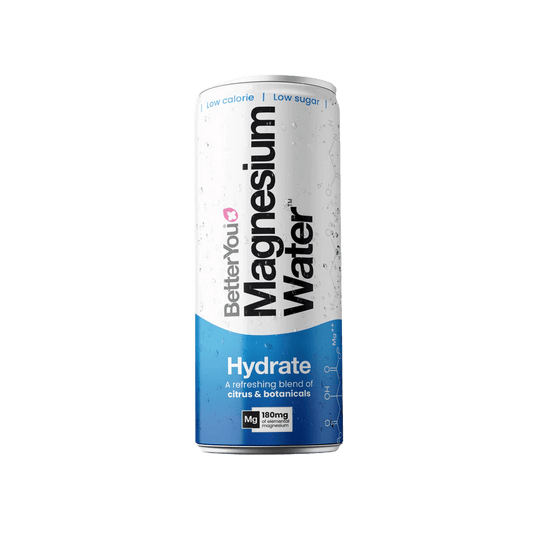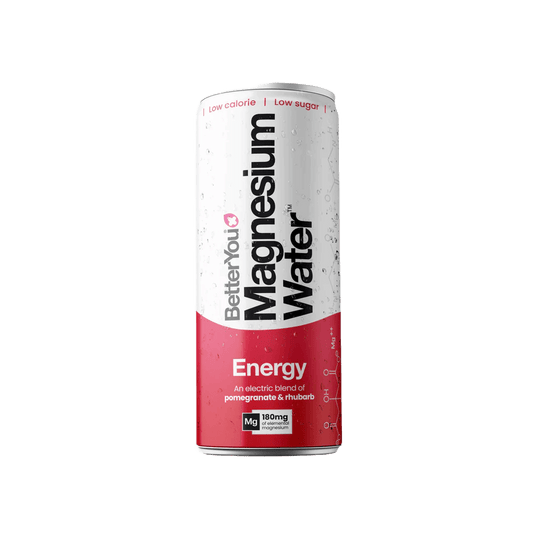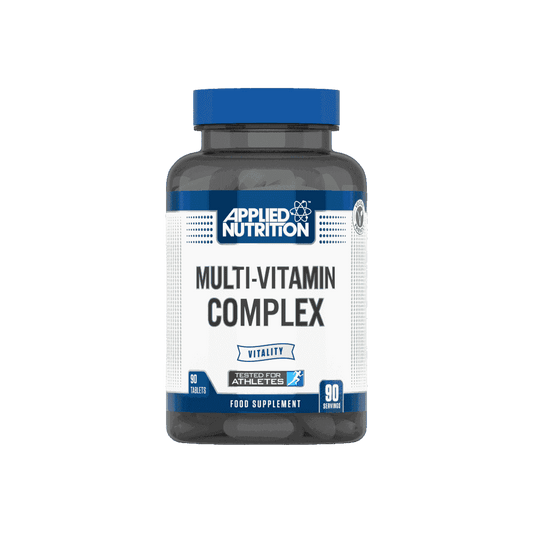Introduction: Blood Pressure and the Role of Supplements
Blood pressure is one of the body’s most important signals of health — and when it’s high, the risks quietly climb. Hypertension is linked to heart disease, strokes, and kidney issues, and while medication and lifestyle changes are the first line of defence, supplements can play a powerful supporting role.
They won’t replace medical advice, but the right nutrients can strengthen blood vessel function, reduce inflammation, and help the body stay balanced. From magnesium and omega-3 to vitamin D and potassium, there’s plenty of science-backed support to explore.
1) What Is the Best Supplement to Reduce Blood Pressure?
The research points to a few clear winners:
-
Magnesium → helps relax blood vessels.
-
Omega-3 fatty acids → reduce inflammation and improve circulation.
-
Potassium → balances sodium levels, which is vital for blood pressure control.
-
Vitamin D → deficiency is strongly linked to hypertension.
💡 BetterYou Magnesium Water is one of the easiest daily options. Convenient and clean, it provides magnesium in a form you can sip throughout the day — helping support vascular relaxation naturally.

2) What Is the Best Thing to Take Naturally for High Blood Pressure?
Lifestyle is the biggest natural lever. A diet rich in fruits, vegetables, lean proteins, and fibre makes a huge difference, but supplements extend that support by ensuring consistency.
Top natural allies include:
-
Omega-3 from fish oil → for circulation and heart health.
-
Magnesium → for blood vessel relaxation.
-
Potassium → from leafy greens or safe supplementation.
💡 Supplement Needs Omega 3 is an excellent addition here. Taken daily, it helps reduce inflammation, keeps arteries flexible, and supports long-term cardiovascular health.
3) What Vitamin Are You Lacking if You Have High Blood Pressure?
Vitamin D deficiency is one of the most common issues connected to hypertension. In the UK especially, with long winters and limited sunlight, many people simply don’t get enough. Without it, calcium and magnesium balance is affected, and blood pressure regulation suffers.
💡 Applied Nutrition Multi-Vitamin Complex covers vitamin D alongside a range of essential micronutrients, helping to ensure you’re not missing the basics that keep your cardiovascular system running smoothly.

4) Does Magnesium Lower Blood Pressure?
Yes — magnesium is one of the most researched minerals for blood pressure. It works by relaxing the smooth muscles that line blood vessels, making it easier for blood to flow. Studies show it can modestly lower both systolic (the top number) and diastolic (the bottom number) pressure when taken consistently.
💡 This is exactly why BetterYou Magnesium Water is so valuable. It’s an everyday way to keep levels topped up, especially since many diets fall short of the recommended intake.

5) What Vitamin Deficiency Causes High Blood Pressure?
Two stand out:
-
Vitamin D deficiency → linked to impaired vascular function.
-
Potassium deficiency → allows sodium to dominate, raising blood pressure.
Other deficiencies, like magnesium, can add to the problem. That’s why building a balanced supplement base matters.
💡 Applied Nutrition Multi-Vitamin Complex makes this simple — it covers vitamin D, potassium, and a host of other essentials in one daily serving.
✅ What We’ve Looked Into So Far
-
The key supplements that can support healthy blood pressure (magnesium, omega-3, vitamin D, potassium).
-
Why lifestyle plus natural supplementation works best.
-
How deficiencies in vitamin D, magnesium, and potassium raise blood pressure risk.
-
The role of daily essentials like multivitamins and omega-3 in cardiovascular health.
And we’ve highlighted three core products already:
🔜 Part 2 will explore:
-
How quickly magnesium works.
-
Whether turmeric can lower blood pressure.
-
Can you reverse hypertension naturally?
-
The truth about the “60-second trick.”
-
The best foods and supplements for blood pressure control.
How to Support Healthy Blood Pressure With Supplements (Part 2)
6) How Quickly Does Magnesium Lower Blood Pressure?
Magnesium isn’t a quick fix. Unlike caffeine, which affects you within minutes, magnesium works gradually. Studies show improvements in blood pressure readings typically appear after 1–3 months of consistent use.
That said, some people report feeling calmer or noticing fewer muscle cramps within the first few weeks. Think of magnesium as a long-term investment in vascular health rather than an instant remedy.
💡 Daily use of BetterYou Magnesium Water is a simple way to stay consistent — and consistency is where results come from.
7) Can Turmeric Lower Blood Pressure?
Turmeric is often associated with joint health and inflammation, but it may also support cardiovascular function. Curcumin, its active compound, helps improve circulation by reducing oxidative stress in blood vessels. While it won’t replace medication, regular use may contribute to modest improvements in blood pressure.
Turmeric works best when combined with other nutrients like omega-3 and magnesium, which directly affect vascular relaxation.
💡 This is where Supplement Needs Omega 3 pairs perfectly — both fight inflammation, but in different, complementary ways.
8) Can You Reverse High Blood Pressure Naturally?
In many cases, yes. High blood pressure is strongly linked to lifestyle: poor diet, lack of exercise, stress, and poor sleep all play a role. By addressing these, you can often bring blood pressure down without medication, or at least reduce reliance on it.
The natural “pillars” include:
-
A diet rich in vegetables, whole grains, and lean protein.
-
Daily movement, especially resistance training and cardio.
-
Managing stress with techniques like meditation or yoga.
-
Sleep quality — aiming for 7–9 hours per night.
-
Targeted supplementation to fill nutrient gaps.
💡 Protein intake also matters, especially for weight management. Combat Fuel Clear Whey is a light, lactose-free option that supports lean muscle and recovery without unnecessary calories — important when weight control is part of blood pressure management.
9) What Is the 60-Second Trick to Lower Blood Pressure?
You may have seen headlines about a “60-second trick” to lower blood pressure. The reality is less dramatic, but still useful: slow, controlled breathing.
Deep breathing exercises — inhaling for 4 seconds, exhaling for 6–8 — activate the parasympathetic nervous system, which helps lower heart rate and reduce blood pressure temporarily.
It’s not magic, and it won’t cure hypertension, but paired with supplements like magnesium and omega-3, stress-reduction practices can have a meaningful long-term effect.
💡 For added support, Supplement Needs Ashwagandha is worth considering. Known for helping regulate cortisol and calm the nervous system, it can work alongside magnesium and omega-3 to make stress management — and therefore blood pressure management — that much easier.

10) What Foods and Supplements Are Best for Controlling Blood Pressure?
The best foods for blood pressure are those that are naturally high in potassium, magnesium, and fibre:
-
Leafy greens
-
Bananas
-
Oily fish
-
Nuts and seeds
-
Whole grains
The top supplements include:
-
Magnesium → relaxes blood vessels.
-
Omega-3 → reduces inflammation.
-
Vitamin D → supports vascular health.
-
Potassium → balances sodium.
-
Multivitamins → for full coverage.
💡 That’s why a stack of BetterYou Magnesium Water, Supplement Needs Omega 3, and Applied Nutrition Multi-Vitamin Complex is such a powerful foundation. Together, they hit the main nutrients consistently, making it easier to keep blood pressure under control.
🧠 FAQ: Supplements for Blood Pressure
1. What supplements lower blood pressure naturally?
Magnesium, omega-3, vitamin D, and potassium are the most effective.
2. Can omega-3 help reduce blood pressure?
Yes — omega-3 supports vascular health and lowers inflammation, which eases strain on the heart.
3. Should you take magnesium for blood pressure?
Yes — magnesium is one of the best-studied minerals for natural blood pressure support.
4. What are the best vitamins for cardiovascular health UK?
Vitamin D, magnesium, omega-3, and potassium are the big four.
5. Are supplements enough to lower blood pressure on their own?
Not usually — they work best alongside lifestyle changes like diet, exercise, stress control, and quality sleep.
Conclusion: Supplements as a Blood Pressure Ally
Supporting healthy blood pressure is about balance. No single supplement will do it alone, but together, magnesium, omega-3, vitamin D, and potassium form a powerful support system. They help blood vessels relax, reduce inflammation, and cover the gaps that modern diets often leave behind.
💡 Products like BetterYou Magnesium Water, Supplement Needs Omega 3, Applied Nutrition Multi-Vitamin Complex, and Combat Fuel Clear Whey give you the daily tools to support circulation, manage recovery, and keep your body resilient.
Supplements aren’t a cure — but when combined with a smart diet, regular activity, stress management, and good sleep, they help put the odds back in your favour.






